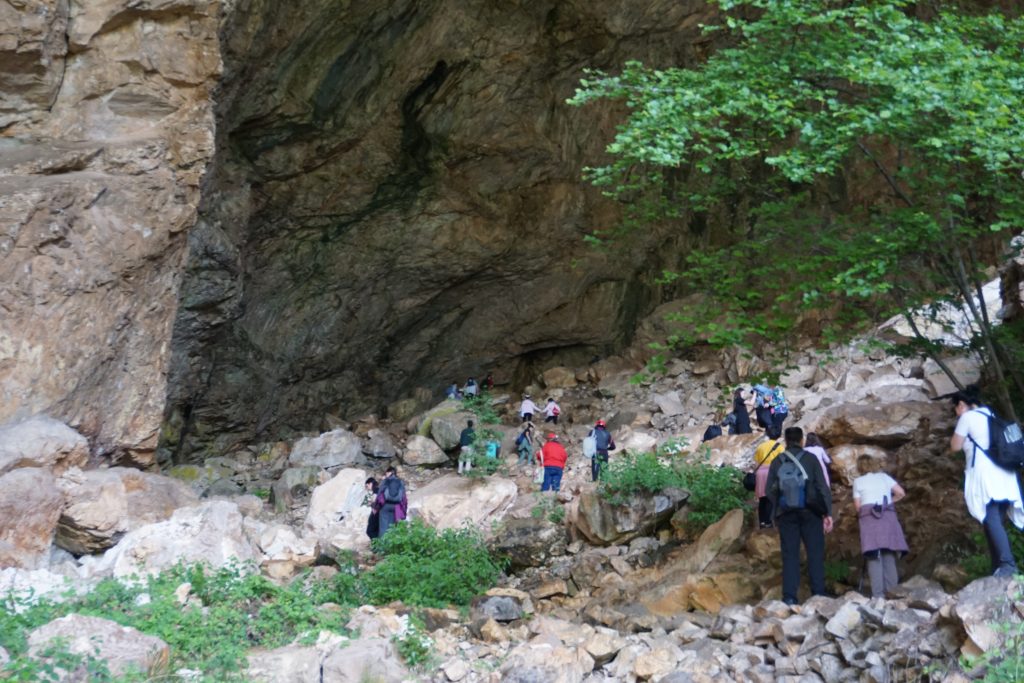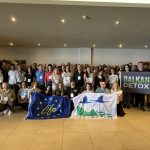 We are infinitely grateful to Professor Biljana Gičevski, who led today’s educational visit to the Pešna Cave, organized by MES for its members. The attendees learned a lot about how the cave was formed and what the area looked like in past millennia.
We are infinitely grateful to Professor Biljana Gičevski, who led today’s educational visit to the Pešna Cave, organized by MES for its members. The attendees learned a lot about how the cave was formed and what the area looked like in past millennia.
Besides scientific knowledge, Professor Gičevski also shared folk tales known about the Pešna Cave, King Marko, and his sisters. For the members of the Macedonian Ecological Society, transportation was organized by bus from Skopje. The journey lasted 3 hours, allowing participants to get acquainted and exchange experiences. The members were of various ages, from young enthusiasts to older nature lovers, which made this excursion even more diverse and rich with different perspectives. The Pešna Cave, located in the western part of Macedonia, is one of the most impressive natural beauties in the country. According to legends, this place was the hiding spot for King Marko’s gold, which only adds to its mystery and appeal.
During the visit, participants had the opportunity to hear about the geological processes that formed the cave, as well as its rich history and myths associated with it. The Macedonian Ecological Society once again proved that it succeeds in uniting its wonderful, environmentally conscious members of various ages and educational backgrounds. These events not only educate the participants but also inspire them to respect and protect nature. Professor Gičevski, with her immense knowledge and enthusiasm, contributed to an unforgettable experience, leaving everyone with newfound knowledge and excitement for further explorations. The visit to Pešna was not only educational but also an emotional adventure.
The beautiful nature, mysterious legends, and scientific facts created a unique experience for all participants. The Pešna Cave continues to fascinate everyone who has the chance to visit and explore it, revealing some of the secrets it holds in its depths. With activities like these, MES fosters love and respect for nature, inspiring future generations to appreciate and protect our natural and cultural heritage.



